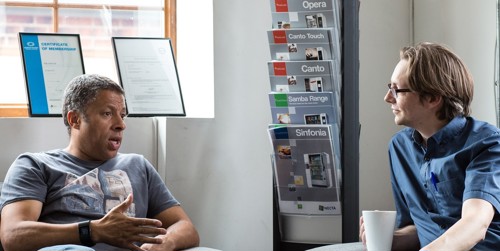How to prepare for interviews and manage your nerves

Most people find interviews stressful. You may really want the job but you are competing with others who want the same thing. You also do not know what to expect, and you may have previous experiences with stressful interviews and assessments.
With such a lot at stake, it is normal to feel nervous. However, there is a lot you can do to stay positive and minimise your nerves.

1. Understand and manage stress
As an interview approaches, you might feel tense or shaky; sense your heart is beating fast; feel hot and sweaty, or cold and clammy; have a dry mouth or a churning stomach.
If you experience some of these, you are not going mad or overreacting. Your ‘fight or flight’ mechanism has probably been triggered. Understanding that this is a natural response will help you to manage these feelings better.
- Understanding stress
A lot of what goes on in our bodies– breathing, digesting our food, sweating, going to the loo, our heartbeat – is regulated by our autonomic nervous system. Most of the time, you won’t be aware of it - it just gets on with its job in the background of your life.
However, this system goes into overdrive if it detects an increase in your stress. When activated, it sends more blood to your muscles, increases your heart rate and breathing and pumps out the hormone adrenaline. This is a temporary response and subsides when the ‘crisis’ is over.
- Managing stress
To prevent the symptoms making your interview really difficult, it's useful to learn some calming strategies that you can practise if you feel nervous.
Mindfulness and meditation both help you feel calmer through focus and breathing. Familiarise yourself with these techniques and use them regularly to keep your stress levels down. You can find additional guidance on stress management techniques linked below.
Stress is not all bad though. Having no nerves at all before an interview is probably just as unhelpful as having too many. Stress is motivating. It prompts you to prepare for the interview and engage with the process when you get there.
2. Be prepared
Preparing thoroughly for an interview helps you to be less anxious.
- Preparing for remote interviews
If you have a phone or video interview, make sure your battery is charged and take the call in a quiet, private space with a good signal. Make sure you are familiar with the chosen conferencing platform. Some employers will give you a bit of time on the call beforehand to check that the technology is working. Read our guide below which gives specific advice for online interviews.
- Preparing for your journey
If the interview is at a venue, check the route carefully. Leave plenty of time for bus or train connections, or to find a parking space. Better to arrive early than late. Knowing how long the journey takes, what the building looks like and where the entrance is will reduce stress on the day, so check it out beforehand.
- Preparing presentations
If you have to give a presentation, study the brief and address all of it. Sticking to time is part of the test, so rehearse it aloud, preferably to someone else. Practise making eye contact with your ‘audience’.
Be clear about how the presentation is to be delivered. Do you have to email it in advance of the interview or turn up with it on the day? Either way, it is advisable to have a backup copy with you.
- Preparing for questions
Think about questions you are likely to be asked in the interview. Some will be about you and your achievements; some will be about how suitable you are for the role and how well you will fit into their organisation. Check out websites that list commonly asked interview questions and prepare answers you would give to each.
Research the company you have applied to so you can speak knowledgeably about what they do. Most interviews end with an opportunity for you to ask questions. Think of some in advance to avoid drying up.
3. On the day
On the day of the interview, you may be feeling especially nervous. The strategies below should help to minimise anxiety.
- Getting ready
Give yourself plenty of time to get ready and plan an outfit that you know makes you feel confident. Avoid clothes that are restrictive or will make you feel hot. Practise walking confidently and smiling, even if you feel nervous.
- Getting into the right mindset
Ahead of your interview find time to get into the zone. Simple things, such as playing your favourite upbeat music and standing tall will really help.
Make sure you avoid negative self-talk or dwelling on things that have gone wrong in the past. Also avoid food and drink which will hype you up such as caffeine, sugar and alcohol.
Check out Amy Cuddy’s Ted Talk about the effect posture can have on your confidence.
- Feeling calm
Use breathing and relaxation techniques to calm your nerves. Tensing and releasing muscles including face muscles will help to relax your body.
Remind yourself that an interview is a two-way process. You are there to find out whether the job is right for you.
Calm yourself down while you are waiting by focussing on your breathing. Another technique is the 5 senses grounding exercise, taking a short time to notice things around you.
4. In the interview
- When you arrive
Smile and make eye contact when you greet people. Accept a glass of water if offered in case you get a dry mouth or need a moment to think later in the interview.
- During the interview
Think and breathe before you answer questions. Feel free to ask the interviewer to clarify if you don’t hear properly or are confused by a question. If you go blank, breathe, regroup your thoughts and look as if this is a natural pause in your answer.
If you feel nervous, wriggle your toes inside your shoes to loosen the tension.
Remember, nerves are normal and if the interviewers do notice yours, they will know that getting the job is important to you.
Resources
Was this article helpful?
Your feedback helps us create better content so if this article helped, please leave a like below and let others know.
The Charlie Waller Trust
The Charlie Waller Trust is a registered charity in England and Wales 1109984. A company limited by guarantee. Registered company in England and Wales 5447902. Registered address: The Charlie Waller Trust, First Floor, 23 Kingfisher Court, Newbury, Berkshire, RG14 5SJ.
Copyright © 2025 The Charlie Waller Trust. All rights reserved.




